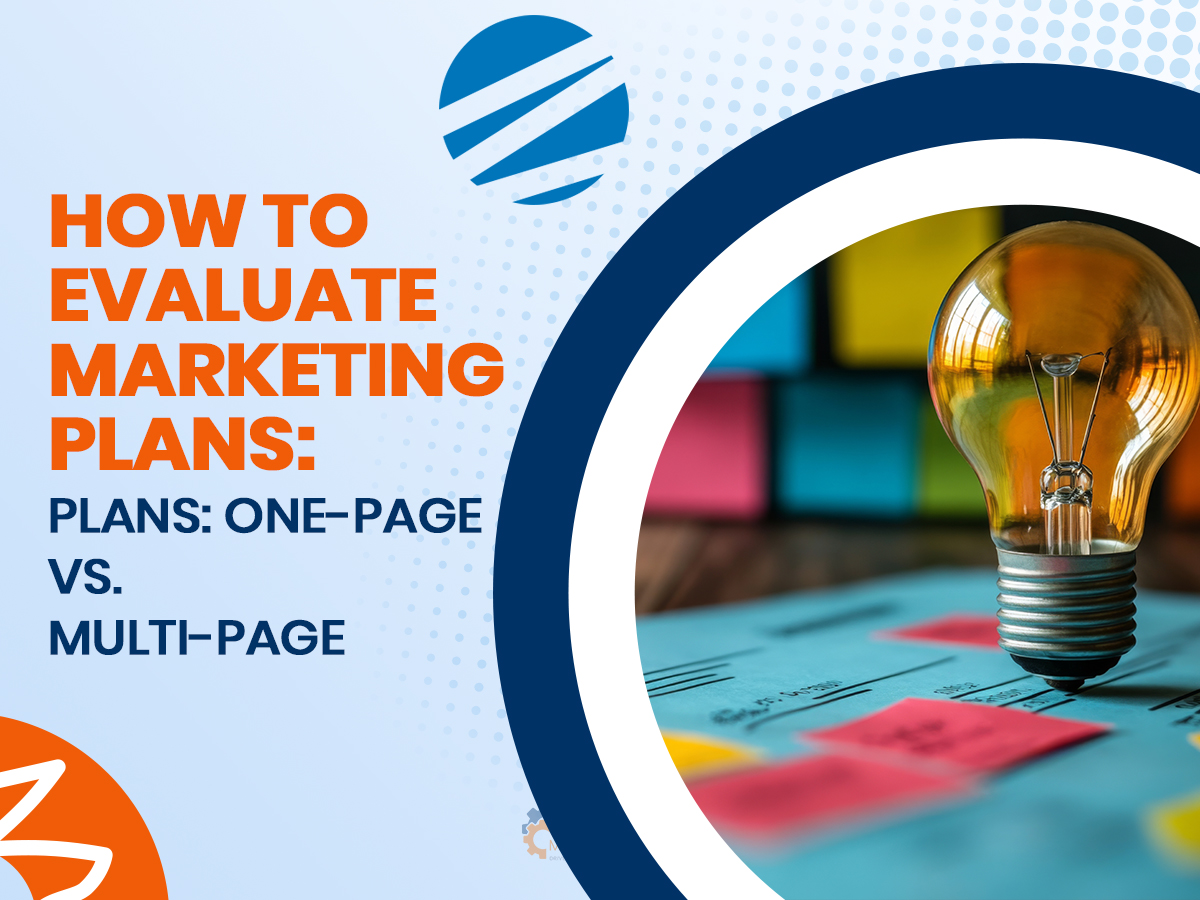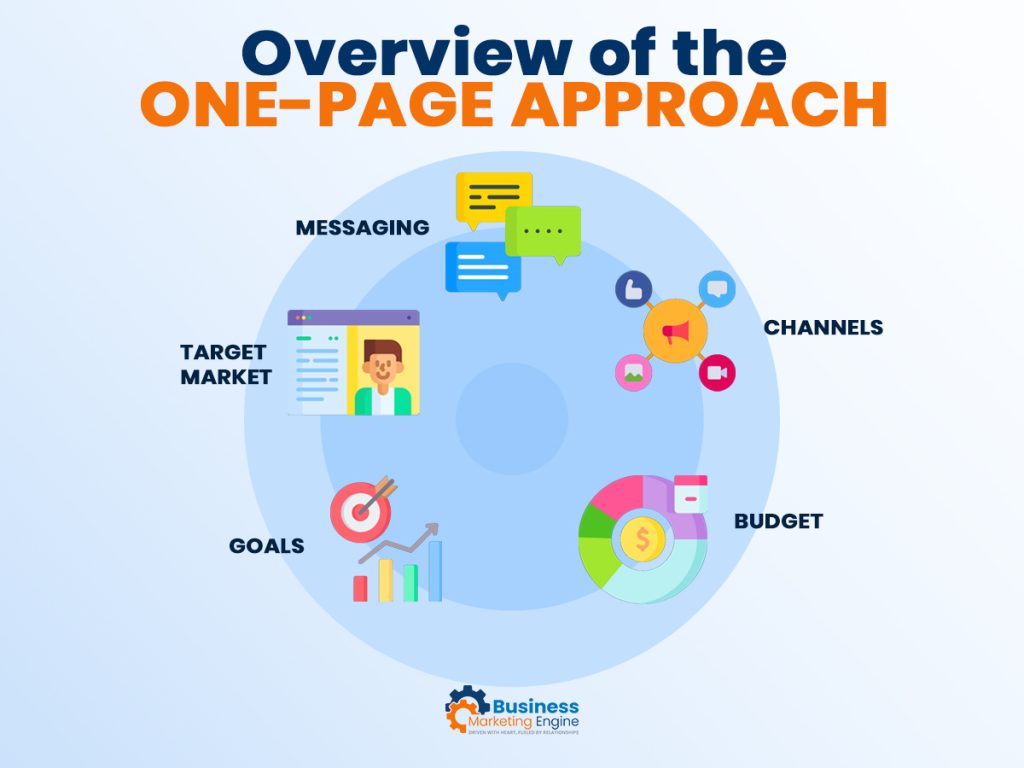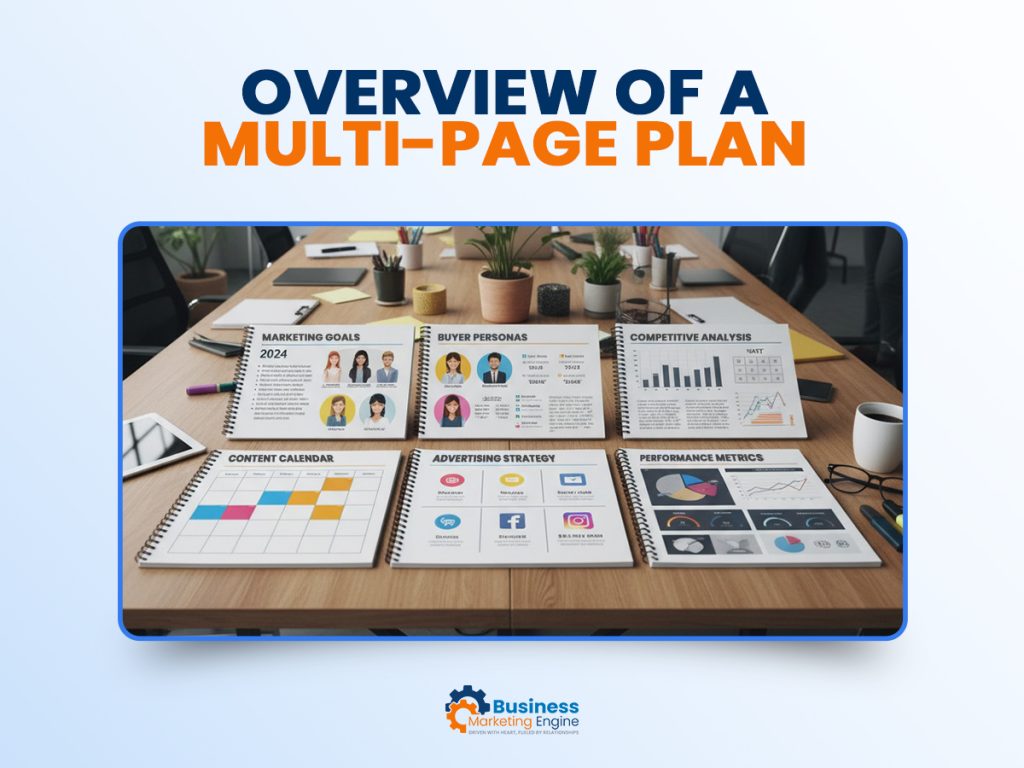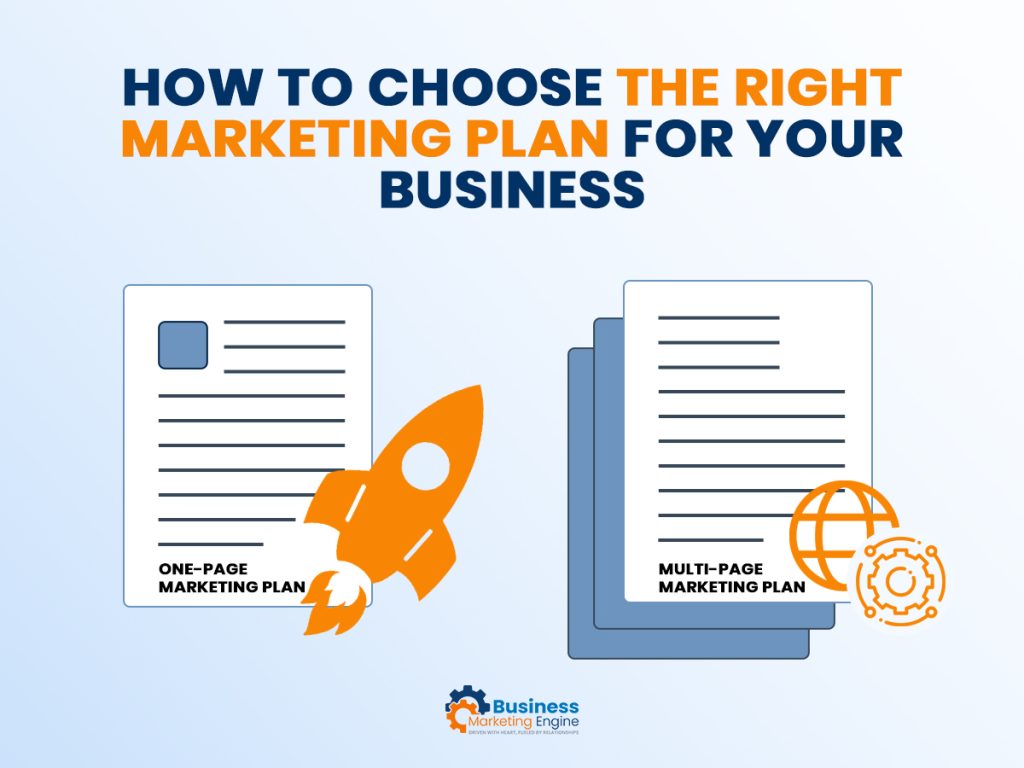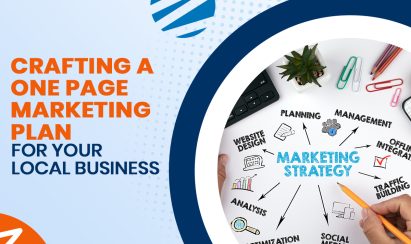Marketing plans should bring clarity, not complexity.
But with so many formats available, choosing the right one can feel overwhelming.
This guide compares marketing plans in one-page and multi-page formats to help you choose the right approach for your business.
Whether you’re launching a startup or scaling an existing brand, understanding which plan works best is essential for smart business planning.
What Is a One-Page Marketing Plan?
A one-page marketing plan is a short, high-level summary of your entire marketing strategy. It’s a single document that outlines goals, tactics, audience, and timelines for quick reference.
These plans are designed for speed, clarity, and flexibility in fast-changing markets. They help businesses focus on what matters most without getting lost in details.
Startups, solopreneurs, and agile teams often prefer this lean approach to business planning.
It’s ideal for companies that need to move quickly and adapt their strategic marketing efforts.
Overview of the One-Page Approach
A one-page plan is a high-level, concise summary of your entire marketing strategy at a quick glance. It’s built for speed, flexibility, and focus — ideal for smaller teams or early-stage businesses.
This format helps startups and solopreneurs stay agile and prioritize actions that drive results.
It includes just the essentials: target market, messaging, channels, budget, and goals.
Check out this blog to learn more
Key Elements of a One-Page Marketing Plan
A strong one-page plan includes only the most important elements of your marketing strategy—nothing extra, nothing wasted.
Start with your ideal customer profile. Define who you serve best and focus your efforts around their needs and behavior.
Next, clarify your value proposition. What makes your offer better, faster, or different than your competition?
Then, outline the channels you’ll use to reach your audience. These might include social media, email, content marketing, or paid ads.
Set clear goals for lead generation and conversion. Every action in your marketing plan should lead back to measurable growth.
Assign key activities and timelines. A good plan breaks down what to do, when to do it, and who owns it.
Lastly, define your success metrics. Track what matters—whether it’s traffic, conversions, or revenue—to guide your next moves.
A one-page plan keeps your business planning simple while covering all the strategic essentials.
What is a Multi-Page Marketing Plan?
Multi-page marketing plans provide a detailed view of all marketing activities. They include thorough research, timelines, budget breakdowns, and KPIs. Larger businesses and complex strategies often require this level of detail.
Multi-page plans support strategic marketing and business planning with greater depth. They are useful for teams needing documentation for stakeholders and cross-department coordination.
Overview of a Multi-Page Plan
Multi-page plans describe marketing goals, buyer personas, and competitive analyses. They break down content calendars, advertising plans, and budgets. These documents also include systems to track and measure performance.
This detail helps keep marketing consistent over the long term. It also ensures all teams and partners understand their roles clearly.
Key Elements of a Multi-Page Marketing Plan
Multi-page plans include in-depth market research and detailed customer personas. They analyze competitive positioning and SWOT (Strength, Weaknesses, Opportunities and Threats) insights. Content marketing calendars and campaign timelines specify tasks and deadlines. Budgets cover ads, staff, and tools with precise line items. Metrics and analytics tools provide ongoing measurement and adjustment. This level of detail supports strategic marketing across many fronts.
Pros and Cons of One-Page vs. Multi-Page Marketing Plans
Pros of a One-Page Marketing Plan
One-page marketing plans are quick to create and easy to update as your business evolves. They simplify communication because you can share them easily with your team. This format helps keep marketing efforts focused and strategic by highlighting only what truly matters. Its simplicity encourages swift decision-making and alignment.
Cons of a One-Page Marketing Plan
However, one-page plans have limited space for in-depth analysis or detailed data. They are not ideal for complex marketing strategies that require thorough documentation. Additionally, these plans may lack scalability for larger businesses with multiple products or diverse markets. They work best for smaller or more agile organizations.
Pros of a Multi-Page Marketing Plan
Multi-page marketing plans offer comprehensive strategies covering all marketing aspects in detail. They are excellent tools for securing investor buy-in or presenting to key stakeholders. This format suits businesses with long-term goals and complex execution plans needing careful coordination. It ensures all teams have clear direction and expectations.
Cons of a Multi-Page Marketing Plan
On the downside, multi-page plans can be time-consuming to create and frequently update. Their complexity may overwhelm some teams, leading to confusion or slow decision-making. Also, this level of detail is not necessary for all businesses, especially smaller or rapidly changing ones. Sometimes, simplicity is more effective.
How to Choose the Right Marketing Plan for Your Business
Factors to Consider
Choosing the right marketing plan starts with understanding your business size and growth stage. Marketing complexity also matters—some businesses need detailed strategies, while others thrive with simplicity. Consider your available resources and how your team is structured for marketing execution. Finally, assess how much data-driven decision-making your business requires to optimize results.
When to Use a One-Page Marketing Plan
One-page marketing plans work well for startups, entrepreneurs, and small businesses. They are ideal when speed and flexibility are critical. This format provides an easy-to-follow, high-level strategy that keeps marketing efforts focused without overwhelming detail.
When to Use a Multi-Page Marketing Plan
Multi-page marketing plans fit large businesses with multiple marketing initiatives across departments. They also suit companies seeking investor funding or strategic partnerships needing detailed plans. Businesses requiring long-term, structured marketing execution will benefit most from this thorough approach.
Adapting Your Marketing Plan Over Time
It’s smart to start small and expand your marketing plan as your business grows. Many companies begin with a one-page plan and transition to a multi-page plan when more detail is needed. Regularly review and revise your marketing plan to ensure it stays aligned with your current business goals. Balancing simplicity and detail based on your evolving needs keeps your marketing strategy effective and manageable.
Conclusion
The best marketing plan depends on your business goals, size, and marketing complexity. Starting with a one-page marketing plan allows you to act quickly and stay focused. As your business scales, you can add more detail and structure with a multi-page plan.
Evaluate your business needs today to choose the right marketing plan and drive lasting growth.
